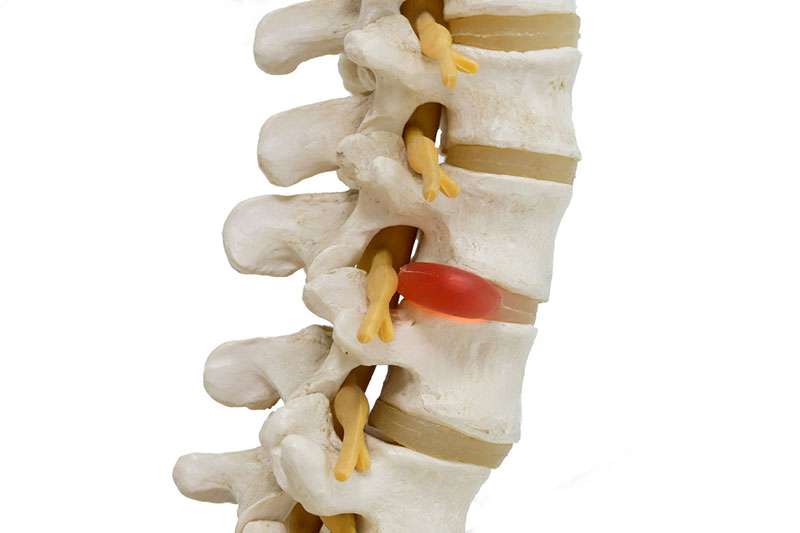While few of us foresee getting a back injury, chronic back pain is one of the most prominent health conditions in the United States. Close to 65 million Americans have had a recent episode of back pain, according to Georgetown University’s Health Policy Institute.
Disk herniation is one possible cause of back pain that doesn’t go away despite at-home care. The sooner you can recognize the warning signs of this common spinal condition, the faster you can receive professional care to alleviate your pain. Plus, early detection of a herniated disk is a great way to prevent further spinal damage and worsened symptoms.
Warning signs of a herniated disk include:
Pain in the Extremities
When a spinal disk is herniated, it means that the soft disk interior pushes out through a tear in the tough disk exterior. This can cause the disk to push on nearby spinal nerves, leading to pain that radiates beyond the site of the injury.
With this in mind, pain in the extremities is a common warning sign of a herniated disk. This injury most often occurs in the lumbar spine, leading to pain in the buttocks, thigh, calf, or foot. However, if a herniated disk develops in the cervical spine, or neck, you may experience pain in the shoulder and arm.
Typically a herniated disk causes pain on only one side of the body or in one extremity.
Tingling and Numbness
Tingling and numbness are neurological symptoms that can occur when spinal nerves become irritated. These symptoms can occur in the part of the body supplied by the nerves around the herniated disk.
Muscle Weakness
The irritated, inflamed nerves around a herniated disk supply specific muscles. Unfortunately, nerve irritation can cause these muscles to weaken, leading to a diminished ability to walk, lift objects, and exercise.
Worsened Pain After Sitting and Sleeping
Sitting and lying down both increase pressure on the spinal disks. So, after sitting for a prolonged period or sleeping at night, many herniated disk patients experience worsened pain. This is why it’s widely recommended to stand up and walk around periodically during the workday with a herniated disk.
To limit pain while sleeping, your physician may recommend a specific sleeping position, such as lying on your back or in a fetal position.
Pain After Long Periods of Walking or Standing
Prolonged periods of walking or standing can exacerbate back pain if you have a herniated disk. This is because the damaged disk can’t effectively absorb the impact of standing or sitting, leading to pain and stiffness.
If you’re suffering from persistent back pain, chiropractic care could be your solution. It’s a safe, natural, and drug-free treatment option that alleviates pressure and promotes circulation to the spine.
At Wasserman Chiropractic, we offer expert chiropractic care, rehabilitation, and fitness services to help you heal from a herniated disk. Contact us today to schedule an appointment!




